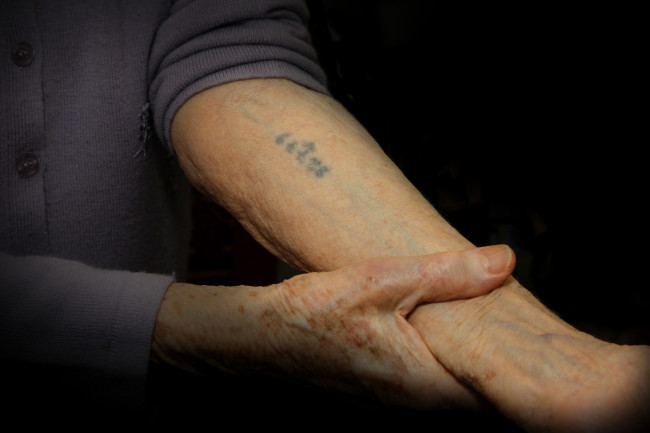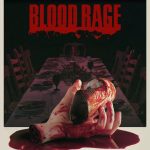Documentary about Holocaust survivor ‘Blue Tattoo’ screens Jan. 24 at The Cooperage in Honesdale

From a press release:
At first glance, Dina Rosenberg Jacobson and Joe Crookston seemed like unlikely collaborators.
When they were introduced in 2008, the 86-year-old Holocaust survivor with white hair and a tattooed left forearm and the youthful folk singer/songwriter from Ithaca, New York came from different worlds. But Jacobson’s story inspired Crookston to write a song about her survival despite incredible odds.
That song, “Blue Tattoo,” inspired the documentary film “Blue Tattoo: Dina’s Story, Joe’s Song,” which will be shown on Sunday, Jan. 24 at 3 p.m. at The Cooperage in Honesdale; Crookston will be in attendance. Admission is a suggested donation of $10 in advance or $15 at the door. To reserve a seat, call 570-253-2020.
Jacobson’s parents were shot to death after being betrayed by neighbors. Five siblings and a brother-in-law were killed after they fled to Hungary. She ended up in the Auschwitz-Birkenau concentration camp in Poland, where she was tattooed with the number 82779. Although she lost her name and her family, she did not lose her soul.
Jacobson and the other prisoners were awakened at 3 a.m. each day to work countless hours moving large rocks; they didn’t get to bed until 10 p.m. They lived on rotten cabbage soup, stale bread, and fear, watching other prisoners being sent to the gas chambers.
“Nobody was a person there,” Jacobson said years later. “Everyone was thinking every minute you were next to go to the gas chamber. You weren’t thinking to live; you were thinking to die.”
She and other women actually were sent to the Auschwitz gas chamber toward the end of the war, but released after 24 hours.
Later, she met her husband in the displaced persons camp, where Connie, the oldest of their three children, was born. Connie is the little girl in Crookston’s song, asking her mother questions about her life.
Decades later, Crookston wrote a song about Jacobson as though she was newly immigrated to America and was telling young Connie about the blue tattoo on her arm. That song inspired the film, which features Crookston, Jacobson, her children, her synagogue leader, and more.
The film also includes Crookston singing the song, which he has called “probably the hardest song I have ever written. It mattered so much to me to do it well and not dishonor her.” That song is on the CD “Able Baker Charlie and Dog,” which was the International Folk Alliance 2009 Album of the Year.
When we think of everything happening around the globe, this film is not an historical story. It is our story, timeless and relevant to our world today.
The Cooperage is operated by The Cooperage Project, a nonprofit organization that seeks to build community through performance events, learning opportunities, markets, and good times.
For more information, visit thecooperageproject.org or call 570-253-2020.



